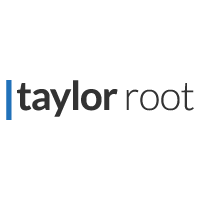

Chief legal officer | Alghanim Industries Group










Dr. Fawaz Alawadhi
Chief legal officer | Alghanim Industries Group
How do you approach managing legal aspects during periods of instability or crises, and how does your legal strategy align with the broader business strategy to ensure the organisation’s resilience?
We conducted a thorough legal assessment of all contractual and legal rights, obligations and liabilities of our group companies (above 80), in order to ensure an efficient decision-making process during crises and our compliance with the applicable laws. Additionally, we have established strong communication channels between our legal department from one side, and the board of our group and the other control functions at the group level (including compliance, risk, and internal audit) from the other side. This approach ensures that we maintain consistent and effective communication across all our groups during crises. Overall, our strategy takes into consideration practical business needs and the applicable laws to safeguard the resilience and continuity of the entire organisation.
What are the main cases or transactions that you have been involved in recently?
I supervised several projects within the company that are amongst the first in the region. One important project was overseeing the restructuring efforts of the Alghanim Industries’ group of companies. Another major initiative that I oversaw was conducting a comprehensive review of key agreements focused on reassessing liability parameters related to data privacy and cybersecurity breaches. This achievement proactively mitigates the risks in the evolving data security landscape in jurisdictions where our companies operate.
How have you integrated technology into your legal processes, and what impact has this had on efficiency and compliance?
We selected and incorporated reliable new AI technology tools aimed at assisting our legal team in its different tasks, and helping it improve efficiency, productivity and accuracy. The new tools enabled our legal team to complete its tasks more efficiently and contributed to enhancing compliance in several ways. For example, reviewing and summarising large volumes of information and documents, promptly identifying issues that clearly do not align with legal requirements, and immediately generating legal templates and work products.
What do you see as the major legal challenges for businesses in the region over the next five years, and how are you preparing to address them?
The main legal challenges in the coming years will be related to the use of new technologies such as AI and their impact on society and businesses. There is currently little to no legislation on these technologies, which is why we have started adapting our internal policies, especially in relation to ethics, cybersecurity, environment and employment. I believe that all companies are facing these new challenges nowadays. They should implement new technologies in a way both serving the business and protecting the companies’ and employees’ rights. For example, employees should not be threatened by the implementation of new technologies like AI. However, employees using AI tools should always fact check the information it provides, and make sure they are complying with data privacy policies and applicable laws. In other words, every company should ensure that no sensitive and personal information/documents are used or uploaded to AI platforms by any employee, given that this will raise ethical, data privacy and compliance concerns. In parallel, conducting regular cybersecurity and IT checks are crucial to avoid any breach. Our update to the internal policies will clearly take into consideration such challenges.
Chief legal officer | Alghanim Industries
Chief legal officer | Alghanim Industries